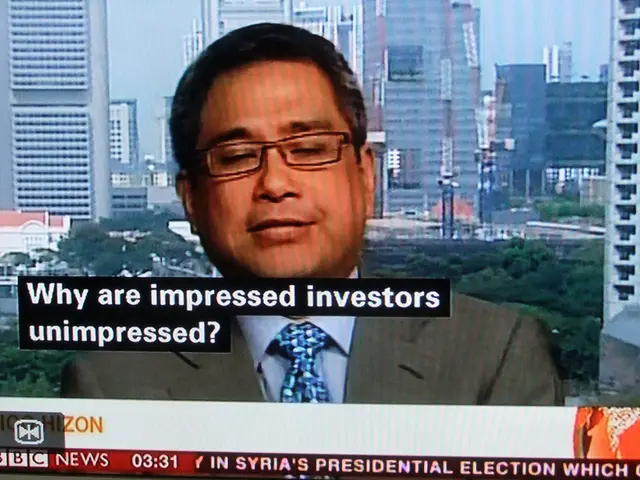Auto sector faces potential significant financial consequences, according to Ford's top executive, James Farley, as he voices worries over the continuation of Trump tariffs.
In a series of statements, Ford's top executives have expressed concerns about the potential effects of US tariffs on the automotive industry.
Ford's new Chief Financial Officer, Sherry House, highlighted the complexity of predicting the exact impact of new tariffs, citing factors such as price elasticities, supplier reactions, substitution effects, and possible duty drawbacks.
James Farley, Ford's president, CEO, and director, has been more vocal in his concerns. He stated that prolonged US tariffs on imports from Canada and Mexico would have a devastating impact on the US automotive industry. Farley expressed particular concern about the inconsistency in tariff application, citing examples where Hyundai-Kia and Toyota import large numbers of vehicles into the US without incremental tariffs.
Ford's conversations with the Trump administration and congressional leaders indicate a commitment to strengthening the US automotive industry, not weakening it. However, Farley reiterated his call for a more comprehensive tariff policy, stating that it needs to be long-term given the millions of vehicles being imported to the US from other markets.
From an operational standpoint, a few weeks of tariffs are manageable for Ford, but if they persist, Ford would have to make major strategy shifts in the US. This includes considering building new plants there. Ford derives 90% of its steel from the US, making it less exposed to tariffs on aluminum and steel confirmed by Trump on February 10.
The value of Ford vehicle automotive products moved across the borders between the US and Canada and Mexico is estimated to be worth $35 billion. Companies that produce goods under the USMCA agreement and import from Canada and Mexico without additional tariffs benefit from the tariff extension, as they avoid paying extra duties while competitors like Ford must charge higher prices to customers.
The industry is also witnessing changes in trade policy, with tax policy expected to follow. This includes that related to the Inflation Reduction Act (IRA) and emissions policy that have big consequences for the automotive sector. Ford has already sunk capital into battery production and EV assembly across Ohio, Michigan, Kentucky, and Tennessee, and many jobs will be at risk if big parts of the IRA bill are repealed.
Other potential changes in policy such as changes to the consumer tax credit or CTC, commercial and production tax credits or PTC would also be harmful. Farley emphasized that Ford is in control of its own destiny, with stronger products and services promised for 2025. However, he warned that the impacts from changes in policy by the Trump administration, including 25% tariffs on goods coming from Canada and Mexico, have not been factored into Ford's guidance for increasing its earnings before tax from $7 billion to around $8.5 billion this year.
The US authorities cannot just cherry pick one place or another to apply tariffs because it would mean a bonanza for foreign competitors not affected by the tariffs. Chinese EV imports currently face 100% tariffs, despite Chinese carmakers not making significant volume shipments to the US. This, along with other potential policy changes, could potentially wipe out billions of dollars of industry profits and adversely affect US jobs and the entire value system in the industry.
Read also:
- Nightly sweat episodes linked to GERD: Crucial insights explained
- Fitbit Versa 4 Experiences Continuous Price Drops on Amazon
- Asthma Diagnosis: Exploring FeNO Tests and Related Treatments
- Unfortunate Financial Disarray for a Family from California After an Expensive Emergency Room Visit with Their Burned Infant







